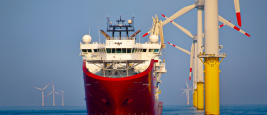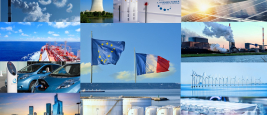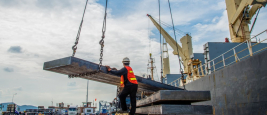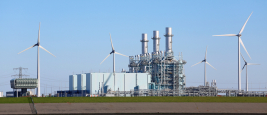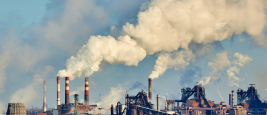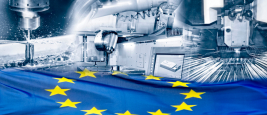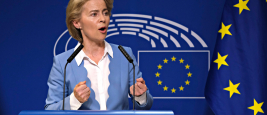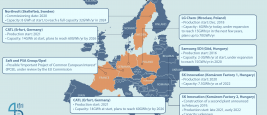
Carole MATHIEU
Former Head of EU Policies, Center for Energy & Climate
Research Interests:
- Climate change governance
- European energy policy
- Electricity markets
- France
From 2014 to 2022, Carole Mathieu was Head of EU Policies at the Center for Energy & Climate of the French Institute for International Relations (Ifri). Her research areas primarily covered climate change policies and the transformation of energy systems, European energy policy, and security of gas supply.
Prior to joining Ifri's Center for Energy & Climate, she was an analyst at the French Energy Regulatory Commission (2010-2014) where she was actively involved in defining and defending the positions of the French regulator in the discussions with European Institutions, network and infrastructure operators and market players. Her work focused on the harmonization of European gas network and market rules and on questions relating to energy security of supply of the European Union. She has regularly conducted training sessions at the French Gas Association (AFG) on the EU energy policy and on energy markets regulation. Holding a Master’s degree in Public Administration – Energy from Sciences Po Paris, Carole Mathieu has also studied at Boston College (Massachusetts, U.S.).
Only eight years are left to expand by almost three times the current total installed wind and solar energy capacity in the European Union (EU) in adding around 600 gigawatts (GW), and so reach the highly-ambitious 2030 targets. This requires a mobilization whose scale is immense – amidst...
The success of energy transition is first and foremost a question of good governance, which must be based on expertise and collective deliberation.
The Carbon Border Adjustment Mechanism (CBAM) is a first step toward reconciling the European Union (EU)’s climate and trade interests. However, a complementary set of domestic and external policies will be needed to drive the decarbonization of European and global energy-intensive industries....
On its path to carbon neutrality, the European Union (EU) will be exposed to growing energy price volatility and vulnerable to Russian and Chinese pressure on supply and demand.
The fight against climate change has a major economic dimension. With climate neutrality as their new objective, the major powers are counting on green industrial policy, and trying to contain the emissions related to their imports.
The world’s largest emitting countries are reconsidering the role of carbon pricing instruments and increasingly looking at carbon border adjustment mechanisms (CBAMs) to address leakage concerns. This renewed momentum should trigger a broader discussion on how to make trade policies...
Aligning its climate and industrial policies, the European Union (UE) is introducing sustainability requirements for the whole life-cycle of electric vehicle (EV) batteries. This initiative would not only ensure that EVs fit with Europe’s climate-neutrality and resource-efficiency pledges, but...
2019 has marked a fundamental turning point in the energy transition of the European Union (EU).
French battery cell manufacturer Saft and Opel, the German subsidiary of automaker PSA Group, are finalising the details of a major investment project in battery cell manufacturing. Is the European Union (EU) finally challenging Asia’s dominance on battery cells production? What chances...
The low-carbon energy transition in France, the European Union (EU) and the world is today taking place unevenly and too slowly to preserve the climate and biodiversity. CO2 emissions are continuing to rise, while governments’ commitments are insufficient: in the long-term, the...
Over and again, legislators worldwide are confronting the same question: which technologies do we subsidise and support, when, by how much, and for how long. Get it right and those costs will reduce and should disappear once scale is reached. Solar and wind are on their way to proving...
Carole Mathieu of the French Institute of International Relations explains some of the developments between the EU battery manufacturing and automaker industries and how they impact on the region's contributions towards the global energy storage market.
Belgium is slowly phasing out its aging nuclear energy infrastructure. But looming winter weather, limited renewable options and a poorly connected electricity network have left the country at risk of blackouts.
A year after the landmark COP21 climate discussions, the ambitious Paris Agreement entered into force just before COP22 began in Marrakech, Marrocco. With this latest round of talks new over, Carole Mathieu of Ifri debriefs Nuclear Report on what happened in Marrakech, the importance of the...
A month after COP21 summit, club of major economies weighs policy tweaks to meet tough global warming goal.
World leaders to gather in Paris for a new round of talks on climate change. CNN's Jim Bittermann reports.
Europe’s largest oil companies are banding together to forge a joint strategy on climate-change policy, alarmed they’ll be ignored as the world works toward a historic deal limiting greenhouse gases.




